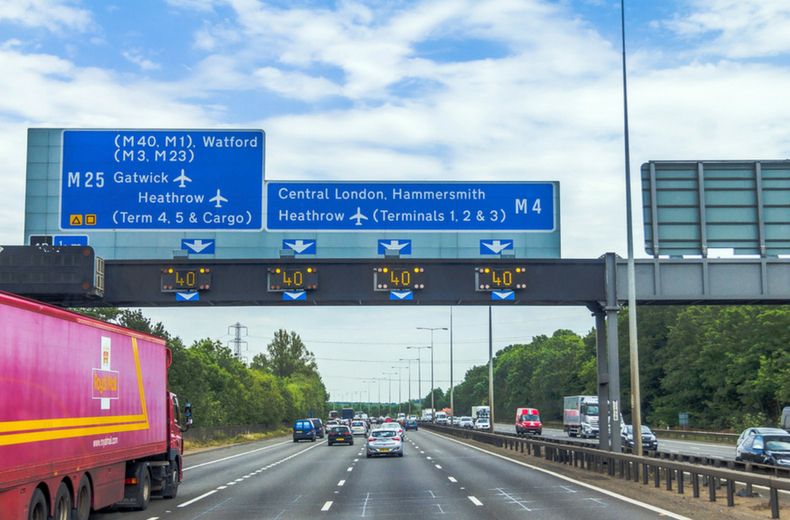Construction on new ‘Smart Motorways’ halted amid safety fears
Huge multi-million pound projects to 'upgrade' to smart motorways is halted after shocking safety concerns are exposed in BBC documentary

Construction of ‘smart motorways’ in the United Kingdom have been halted immediately following a damning review that raised serious concerns about their safety.
It was announced last week that transport secretary Grant Shapps had ordered an urgent review into figures unearthed in a Freedom of Information Act that revealed the M25 suffered 20-times more ‘near-misses’ than motorways that retained a hard shoulder.
According to a Panorama documentary, in total 38 people have died in the last five years in crashes on the smart motorway, while 1485 near-misses were record – a huge escalation on the 72 incidents recorded prior to it being upgraded to a smart motorway.
There has long been criticism of smart motorways, which use variable speed limits with camera detection to regulate traffic flows. However, it is the activation of hard shoulders as useable lanes that draws ire, often leaving vulnerable drives stuck in live lanes.
Despite these concerns, smart motorways have been rolled out across large stretches of the British highways, covering large distances on many of the UK’s busiest roads including the M25, M1 and M6.
There are currently several multi-million pound projects ongoing to continue introducing smart motorways, including a £90million scheme to ‘upgrade’ a large portion of the M20 in Kent. This will now stop under this review, along with projects on the M23 near Gatwick Airport and the M62 near Manchester.
"That stretch of the M20 and all other stretches currently being worked on will not be opened until we have the outcome," Mr Shapps told MPs
Nicholas Lyes, head of roads policy for the RAC, said: “A commitment to install stopped vehicle detection technology on the whole smart motorway network would be a welcome step and something the RAC has called for consistently in recent years.
“RAC research suggests that more than two-thirds of drivers believe that permanently removing the hard shoulder compromises safety in the event of a breakdown. Simply ploughing on with the status quo regardless isn’t an option anymore.”

How did things come to this?
Anyone who drives longer distances regularly will tell you it is difficult to cover a significant stretch of the UK without either coming through smart motorways or having to crawl through the construction works of a forthcoming one. In all, 200 miles of the UK’s 2200 miles of highway are smart.
Ironically, the latter – such as a nearly 30 mile stretch of the M1 being built – is often peppered with signs suggesting the roads are being ‘upgraded’ but this sudden halt to construction following a damning report
Personally, I’ve found smart motorways to be more complicated than stretches without them, making it difficult sometimes to go with the flow of traffic as it people are distracted by looking at speed limits on gantries than the car or motorbike in front or beside you that may be speeding up or slowing down at a different rate to you.
Then there is the activation of hard shoulders which would personally terrify me if I ever broke down to think there is a flood of traffic potentially coming directly towards me.
Quite how the figures presented in the documentary were not recognised earlier is a question that the Highways Agency and the government might want to ask because if 38 people have died as a result of smart motorways being introduced, quite how it has been allowed to expand exponentially over the years is a scandalous.

